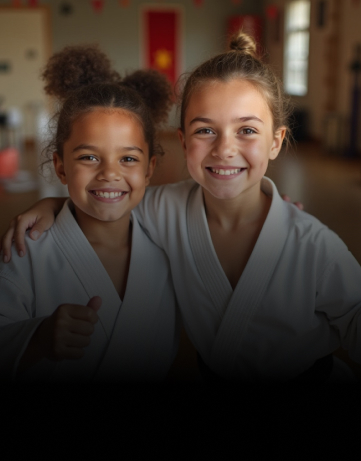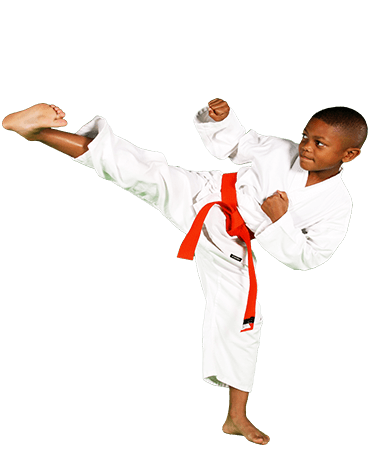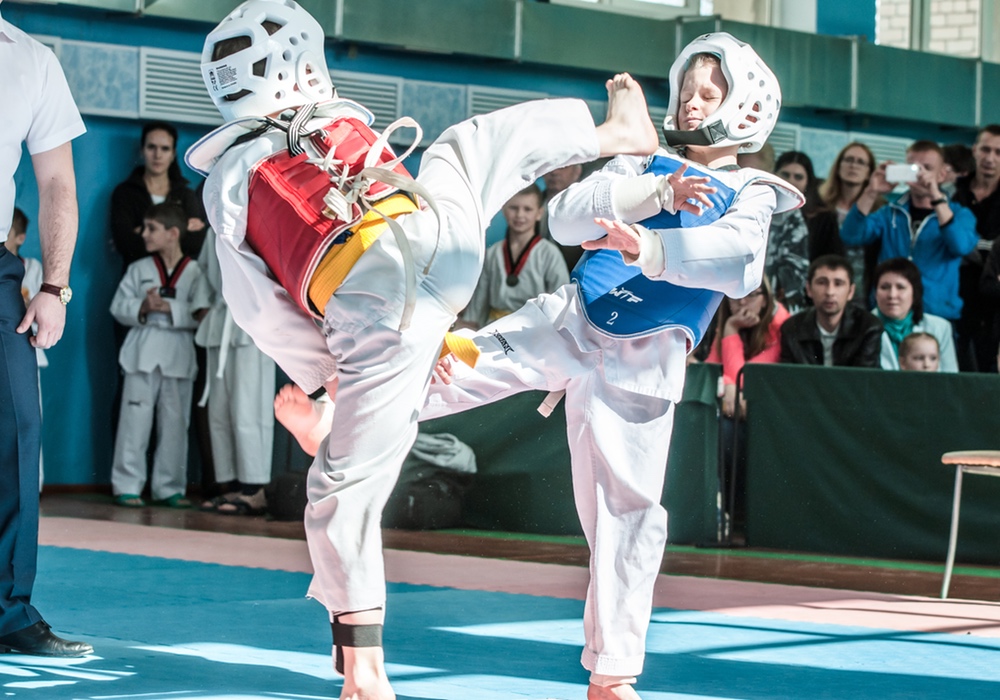Just How Karate for Kids Can Increase Self-confidence and Self-control in Youthful Martial Artists
Karate for children provides a special possibility to build confidence and discipline in young martial musicians. As they discover brand-new techniques and face difficulties, they not just obtain skills however additionally develop a strong sense of self-respect. This structured environment encourages them to appreciate the journey of renovation. Exactly how does this training equate right into their everyday lives? Discover the much deeper connections that make karate greater than simply a sport.
The Relevance of Self-confidence in Childhood Years Growth
Confidence is a necessary foundation in youth growth. When you nurture your child's self-esteem, you empower them to deal with obstacles, take dangers, and reveal themselves easily. Youngsters with self-confidence are a lot more happy to discover social circumstances and brand-new activities, which can lead to lasting friendships and beneficial experiences.Encouraging your youngster to get out of their comfort zone fosters resilience. They learn that failing isn't completion however rather a tipping stone to success. By celebrating their accomplishments, regardless of exactly how tiny, you assist them recognize their abilities and worth.In this journey, support and favorable support from you play an essential function. Whether it's with praise or just being present, your involvement increases their self-confidence. As they expand, this self-assurance becomes a long-lasting asset, equipping them to browse both obstacles and possibilities with a solid sense of self.
Just How Martial Arts Instructs Technique and Emphasis
Karate helps you construct self-control and emphasis via its structured training regimen. As you exercise mindfulness during each session, you'll discover to concentrate far better both on and off the mat. Plus, establishing and accomplishing objectives in karate enhances your capability to stay dedicated and mindful.
Structured Training Program
While you take part in karate training, you'll quickly find how a structured regimen infuses discipline and focus in young practitioners. Each class complies with a specific style, consisting of warm-ups, method method, and sparring. This consistency educates you to appreciate the procedure and commit to enhancement. As you find out forms and methods, you create a sense of responsibility for your own progress.The organized atmosphere motivates you to establish goals, whether understanding a new belt or developing a kata. You'll locate that staying focused during courses and drills hones your concentration. The self-control you grow in martial arts extends beyond the dojo, positively affecting your schoolwork and day-to-day routines. Each session strengthens the relevance of commitment, aiding you grow into an extra disciplined person.
Mindfulness in Method
As you exercise karate, you'll find that mindfulness ends up being a vital part of your training. Each step needs your complete attention, helping you stay concentrated on the here and now moment. You'll discover to tune out distractions and concentrate on your breathing, movements, and objectives. This increased recognition sharpens your reflexes and enhances your discipline.During sparring or types, you'll find the importance of being mentally present - Karate Salisbury MD. You'll observe exactly how this emphasis not just boosts your strategy yet additionally builds your self-confidence. By exercising mindfulness in karate, you cultivate persistence and resilience, vital traits that prolong beyond the dojo. By doing this, martial arts educates you to harness your mind, aiding you create a self-displined strategy to difficulties both on and off the mat

Personal Goal Setting Techniques
Setting objectives in martial arts isn't nearly earning belts; it's a powerful means to cultivate discipline and emphasis. When you establish certain, achievable targets, you create a roadmap for your progress. Instead of just intending to boost your kicks, attempt concentrating on mastering a particular method each month. This approach maintains you motivated and engaged.Breaking down bigger goals right into smaller, workable actions helps you track your progress and commemorate small success in the process. Whether it's improving your position or enhancing your sparring endurance, every objective reinforces your commitment. As you accomplish these goals, you'll develop self-confidence in your skills and establish a solid sense of technique that extends past the dojo into daily life.
Structure Strength Through Martial Arts
Martial arts, specifically martial arts, offers children a special opportunity to build resilience in a helpful atmosphere. In courses, they deal with difficulties that push their limitations, whether it's sparring or grasping a new method with a companion. Each problem, like a missed out on kick or a lost suit, comes to be a possibility to find out and grow.As they exercise, children discover to accept pain and maintain attempting, also when things get difficult. They find that failing isn't completion; it belongs to the trip. This way of thinking aids them recuperate stronger, not simply in the dojo, yet in day-to-day life.With each obstacle they get over, your child builds confidence in their ability to deal with barriers, sustaining their decision. Through martial arts, they'll recognize that strength isn't almost physical toughness; it has to do with psychological grit and perseverance, empowering them to encounter whatever life throws their way.
The Duty of Regard in Karate Educating
Respect is a fundamental principle in karate training, promoting a society of discipline and camaraderie amongst pupils. When you tip onto the dojo floor, you're not simply discovering techniques; you're additionally discovering to respect your teachers, peers, and the art itself (Karate Salisbury MD). Bowing at the beginning and end of class isn't simply a rule; it symbolizes your acknowledgment of others' dedication.as and initiatives you develop common regard, you'll discover it boosts your understanding experience. You'll listen a lot more attentively to your teacher and gain insights from fellow pupils. This setting urges useful criticism and support, permitting everybody to expand together.Moreover, respect grows self-control. Recognizing the value of effort and humbleness aids you remain focused on your training. Consequently, this regard equates right into your everyday life, enhancing your communications and connections outside the dojo. Via karate, you learn that regard is necessary for personal growth and community building
Accomplishing and setting objectives Success in Martial arts

Social Abilities and Team Effort in the Dojo
While training in the dojo, youngsters naturally create essential social abilities and team effort capabilities. As they practice together with peers, they discover to communicate effectively, share area, and assistance each other. Each class presents possibilities for cooperation, whether it's throughout companion drills or team workouts. This teamwork promotes friendships and develops a feeling of belonging, making the dojo a nurturing environment.Kids additionally obtain beneficial conflict resolution skills. When they come across difficulties, such as disagreements throughout sparring, they find out to browse these circumstances constructively. They practice persistence and empathy, understanding that every person has different staminas and weaknesses.Moreover, joining team tasks cultivates a visit this page feeling of responsibility. You'll see your kid finding out to depend on teammates and take duty for their duty in a group. These experiences not just improve their martial arts trip but additionally furnish them with social tools they'll lug into various other areas of life.

The Long-Term Benefits of Martial Arts Beyond Childhood
As children expand up and shift into adulthood, the benefits of karate expand much past the dojo. You'll discover that the discipline and emphasis found out through martial arts can convert into your professional and academic life. Setting and attaining objectives in martial arts promotes a strong job values, which can push you to master any kind of endeavor.Moreover, the self-confidence gained from grasping techniques and sparring can boost your self-esteem, assisting you take on challenges head-on. This durability comes to be indispensable as you encounter the uncertainties of adulthood.Additionally, the social abilities developed through teamwork and friendship in the dojo can result in much better partnerships in both professional and personal spheres. You'll learn to communicate efficiently, resolve disputes, and develop a helpful network.Ultimately, karate shapes not just knowledgeable martial artists, but all-round people ready to take on the world.
Frequently Asked Questions
What Age Is Finest to Begin Martial Arts for Children?
You can begin martial arts as very early as age 4 or five, yet it often depends on your child's maturity and mlb predictions rate of interest. Finding a course that matches their age and power level makes a big difference.
Are There Any Health Conveniences From Exercising Karate?
Yes, practicing karate deals countless wellness advantages. You'll enhance your toughness, sychronisation, and versatility while enhancing cardiovascular fitness. And also, it improves emphasis and mental health, making it a wonderful choice for overall physical and psychological health.
Exactly How Frequently Should Children Go To Martial Arts Classes?
You need to encourage your children to participate in karate classes at the very least two to three times a week. Consistency aids them discover techniques effectively and establish skills, making their experience extra pleasurable and rewarding in the long run.
Can Karate Assist With Handling Anxiety in Kid?
Yes, karate can help handle anxiety in youngsters. It teaches emphasis and self-constraint while supplying a secure outlet for energy. You'll observe your child growing more certain and calm as they exercise consistently.
What Gear Is Required for Children Starting Karate?
